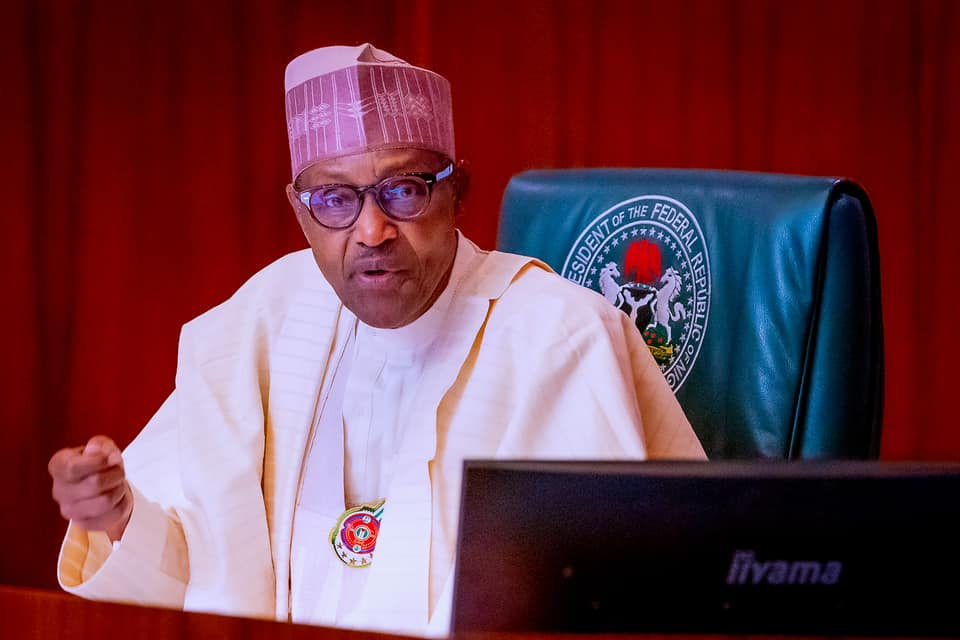Details of the revenues and spending of ministries, departments and agencies of the Federal Government have been shrouded in secrecy following the shutdown of the Open Treasury Portal.
The portal is aimed at providing a comprehensive data of all MDAs on budget implementation, financial records as well as transactions above certain thresholds.
- Union threatens strike over 25% deduction from NECO’s account
- Bandits abduct villagers on Abuja-Kaduna highway hours after IGP’s visit
Visits to the portal – http://opentreasury.gov.ng – on Saturday, Sunday, Monday and Tuesday by Daily Trust indicated that “the site can’t be reached.”
As of the time of this report, no statement has been issued by the government as to why the portal has remained inactive.
The Nigerian government launched the portal in December 2019 as part of move to ensure transparency in government spending.
President Muhammadu Buhari had directed MDAs to publish daily treasury summary statements of financial inflows and outflows.
The president maintained that the daily treasury statements by the Office of the Accountant-General of the Federation (AGF) would give the breakdown of all agencies responsible for each payment above N5 million.
Also, the AGF and all MDAs are expected to publish monthly budget performance report, including their functions, and economic activities performed by them within seven days to the end of the month.
While inaugurating the portal, former Executive Secretary, Nigeria Extractive Industries Transparency Initiative, Mr. Waziri Adio, in a series of tweets via his Twitter handle @Waziriadio, emphasised that all MDAs were mandated to publish, on a daily basis, reports of payments in excess of N5m, monthly budget performance and other sundry official financial dealings.
Adio had tweeted, “With the launch of the Open Treasury Portal today (December 9, 2019) by President Muhammadu Buhari, all MDAs are to publish the following: daily reports of payments from N5m; monthly budget performance; quarterly financial statements; and annual financial statements prepared in compliance with IPSAS.
“All the reports are to be published within stipulated deadlines on this portal: http://opentreasury.gov.ng. The portal will be open to and can be accessed by all.”
Calls to the line of the Director of Information, Press and Public Relations in the Office of the Accountant-General of the Federation, Henshaw Ogubike, on Tuesday rang out.
He later sent a text message to our correspondent, requesting that a message be sent to him. However, as of the time of filing this report, Ogubike had yet to reply to the inquiry on why the portal has been inaccessible for days.
In June 2020, a civic advocacy group, BudgIT, identified discrepancies in the open treasury portal.
The co-founder of the group, Seun Onigbinde, identified some loopholes in the financial records posted on the site and the need for improvement of the system.
Damilola Ogundipe, Communications Lead at BudgIT, in a statement said though the platform was innovative and commendable, much needed to be done so it could fully achieve its goal of enabling public transparency and accountability.
BudgIT in its report titled “OpenTreasury.gov.ng: Nigeria’s Spending Platform: Review, Gaps & Recommendations” analysed data uploaded on the portal from September 2018 to May 2020.
The group said it analysed over 100,000 payment entries from over 600 distinct spreadsheets.
Between January and July 2019, BudgiT said it discovered that large sums were paid into personal accounts; including several records with vague descriptions.
It said, “Over 2,900 payments to individuals were recorded at an aggregate value of N51 billion. A few examples include, N2.04 billion , N2.04 billion and N1 billion paid into personal accounts on the 21st of June 2019 without any payment description along with another N68 million payment for “Ogunsuyi” and N15.8 million for “international” on other dates.
“In the same 2019, we also discovered payment records without descriptions or beneficiary information. At least 5,000 payment records valued at N278 billion were without descriptions and 275 payment records with a value of N43 billion were without beneficiary name.
“These inconspicuous payments cannot be assessed or traced by citizens and interested parties, thereby defeating the purpose of the platform to foster transparency.”
Shutdown may be pointer to corruption – SERAP
Speaking on the shutdown, Socio-Economic Rights and Accountability Project (SERAP) said while the problem may not be directly interpreted as corruption in the system, “it may be an indicator for the facilitator of corruption.”
SERAP Deputy Director, Kola Oluwadare, in an interview with Daily Trust, said the government ought to have issued a statement, giving reasons why the portal was down and steps being taken to fix the problem.
He said, “Naturally if such a transparency and accountability mechanism has been down for a few days, and we do not have any kind of information from the government as to the reason (why it is inaccessible) and steps being taken to solve it, then it means there is a critical problem in our accountability process.
“That also means that from that Saturday when it was observed to have been down, Nigerians are in the dark and have not been able to exercise their right to freedom of information. And that in a way puts a question mark on the commitment of government to transparency given the commitment the Nigerian government has made under the open government partnership which it joined in 2016.”
Kolawole noted that lack of access to information on the portal would deny Nigerians the right to contribute to governance by tracking government’s financial records.
He stated, “We have access to the 2022 Budget but that is not enough. The procurement process is a critical part of budget implementation so if XYZ has been budgeted for a particular sector, Nigerians should be able to follow through to know that this is how much that has been released and how much that has been spent.”
He urged the government to issue a public statement and inform Nigerians why they could not access the portal and the steps being taken to restore it.
“Secondly, the government should provide information within the period it is off. The essence of this is to demonstrate to the people that the government is really transparent,” Kolawole added.

 Join Daily Trust WhatsApp Community For Quick Access To News and Happenings Around You.
Join Daily Trust WhatsApp Community For Quick Access To News and Happenings Around You.


